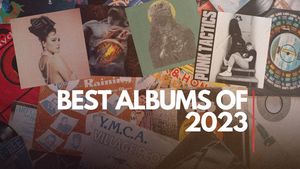
How are language and music related?
Music and language have always been viewed as separate psychic capacities. Older theories about the lateralization of speech and music reflected this dualism, with speech functions considered to be localized in the left hemisphere and music functions thought to be located in the right. Bever and Chiarello (1974), for example, emphasized the different roles of both hemispheres in processing music and language information, with the left hemisphere specialized for propositional, analytic, and serial processing and the right hemisphere specialized for appositional, holistic, and synthetic relationships.
This viewpoint has been challenged in recent years, owing to advancements in brain imaging techniques and neurophysiological metrics used to research brain activities. There's also evidence that music functions can help speech functions and vice versa. This branch of research has acquired a great deal of new data, so it's time to put together the work of the scholars who have been the most visible, productive, and inspiring in this field. These more recent researches have indicated that music and speech functions have numerous similarities and that several brain modules are engaged in both speech and music (Tallal and Gaab, 2006). There's also evidence that music functions can help speech functions and vice versa. This branch of research has acquired a great deal of new data, so it's time to put together the work of the scholars who have been the most visible, productive, and inspiring in this field.

According to a Harvard University study published in 2019, Universality and Diversity in Human Song, music transmits unique codes and patterns that are globally comprehended. To conduct the study, the team analyzed anthropological data and collected music from 315 different civilizations spanning a century. Individuals of any cultural background could understand the meaning of a song by examining its elements, such as tone, ornamentation, and speed. "Music is in fact universal," the study concluded, "because it exists in every society (both with and without words), carries more information within than between societies, regularly supports certain types of behavior, and has formants that are similar to the goals and reactions of singers and listeners."

Ludwig Wittgenstein (1889-1951), an Austrian philosopher, wrote two significant works during his lifetime: the Tractatus Logico-Philosophicus (1921) and the Philosophical Investigations, which was released after his death (1953). With Philosophical Investigations, Wittgenstein both expanded and contradicted his earlier work, arguing that the meaning of language lay not in its relationship to reality (as he had argued in the Tractatus), but in its vast web of crisscrossing usages – a 'language game,' as he called it, in which everyone is involved. Source









